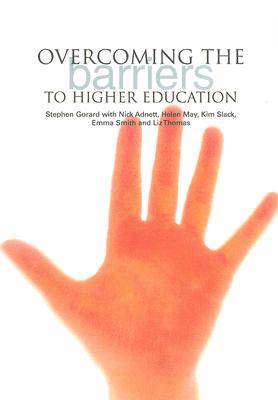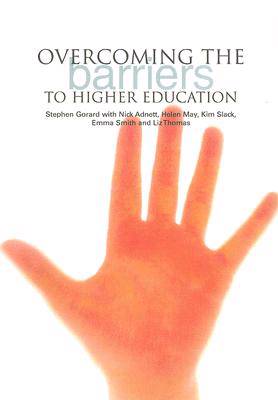
- Afhalen na 1 uur in een winkel met voorraad
- Gratis thuislevering in België vanaf € 30
- Ruim aanbod met 7 miljoen producten
- Afhalen na 1 uur in een winkel met voorraad
- Gratis thuislevering in België vanaf € 30
- Ruim aanbod met 7 miljoen producten
Zoeken
Omschrijving
There are serious inequalities in participation in post-compulsory education and training related to socio-economic status, gender, ethnicity and other characteristics. Such inequalities are reproduced and exacerbated in higher education. This book is based on a review of research evidence that asks whether these social and familial patterns can be interrupted via educational and other interventions.
The answer lies in taking a radically new lifelong approach, considering changes over time and examining earlier life factors that influence participation-such as family, peer group and initial education, all of which help to build the learning trajectory of individuals that leads them to consider higher education. The impressive results make this book essential reading for practitioners and policy-makers concerned with widening participation, and for academics.
The answer lies in taking a radically new lifelong approach, considering changes over time and examining earlier life factors that influence participation-such as family, peer group and initial education, all of which help to build the learning trajectory of individuals that leads them to consider higher education. The impressive results make this book essential reading for practitioners and policy-makers concerned with widening participation, and for academics.
Specificaties
Betrokkenen
- Auteur(s):
- Uitgeverij:
Inhoud
- Aantal bladzijden:
- 166
- Taal:
- Engels
Eigenschappen
- Productcode (EAN):
- 9781858564142
- Verschijningsdatum:
- 31/10/2007
- Uitvoering:
- Paperback
- Formaat:
- Trade paperback (VS)
- Afmetingen:
- 173 mm x 243 mm
- Gewicht:
- 322 g

Alleen bij Standaard Boekhandel
+ 67 punten op je klantenkaart van Standaard Boekhandel
Beoordelingen
We publiceren alleen reviews die voldoen aan de voorwaarden voor reviews. Bekijk onze voorwaarden voor reviews.











